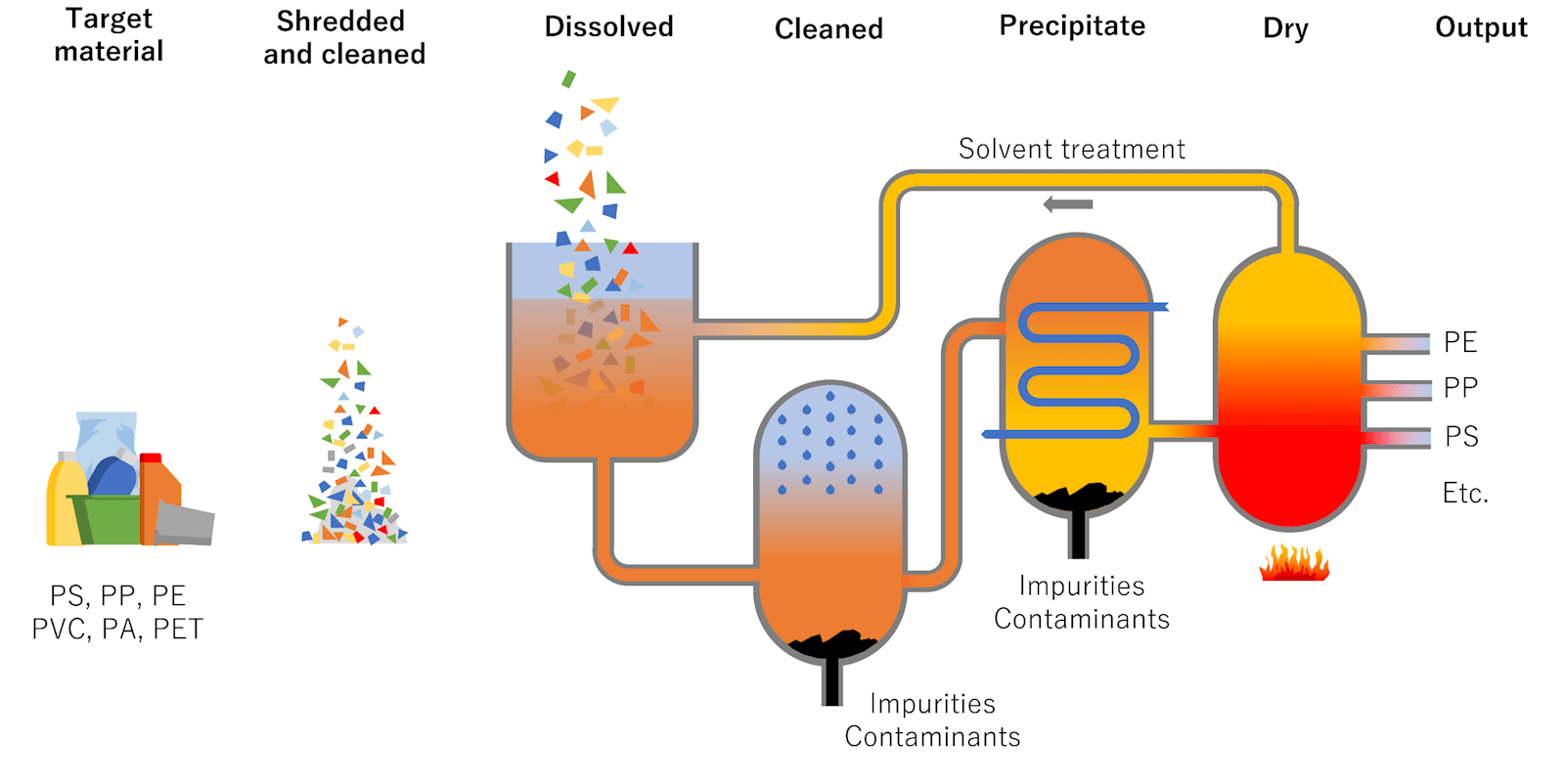Dissolution Recycling
Dissolution Recycling
Recently, a type of mechanical recycling called dissolution recycling has emerged which uses solvents to separate specific plastics from the kind of mixed plastic waste traditional recycling finds hard to handle, or even from composite materials like multilayered food packaging. As a highly-promising form of advanced recycling, this solvent-based method is sometimes erroneously referred to as chemical recycling, or grouped with other new methods under this term.
Yet unlike chemical recycling, it does not alter the chemical structure of the plastics treated, as depolymerization does. In this form of recycling, solvents and other substances are used to break up the polymer chains of plastics in unrecyclable materials like carpeting, so that their chemical building blocks can be saved.
“Dissolution recycling” is a physical recycling process where the desired polymer is extracted using selective solvent(s). The extracted polymers can then be used to make new recycled materials. The dissolution process is an advanced technology by which pre- and post-consumer materials containing the wanted polymer can be put directly into the solvent without any significant pre-treatment.
The solvent will dissolve the desired material while all other waste remains solid and can be filtered out. The dissolved polymer extracted is 100% recycled and can be used for compounding into new materials. Additionally, the remaining materials can be processed further through a cascade of other recycling technologies. Making this process truly circular, the used solvent can be recovered and recirculated within the recycling system, which is also cost-effective.
As described, this physical recycling technology does not require extensive pre-treatment, such as over-sorting, and obtains a high conversion rate. Dissolution recycling is considered a robust technology and will have a vital role to play in the future circularity of plastics.
References:
- ‘Advancing plastics recycling to reach global goals‘ published by Clariant, 28 August 2020
- ‘Contaminated Plastic Waste Finds New Life via Dissolution Recycling‘ by Ben Porter, published in Plastics Today, 26 July 2023
- Image: Dissolution from the British Plastics Federation ‘Overview of Key Processes‘
References:



